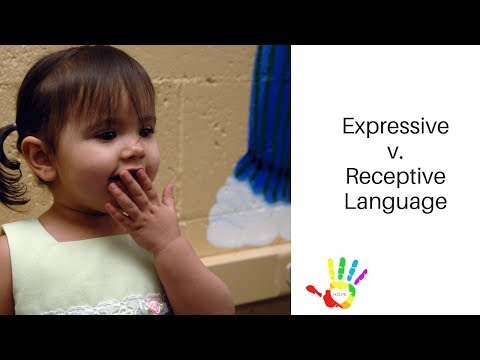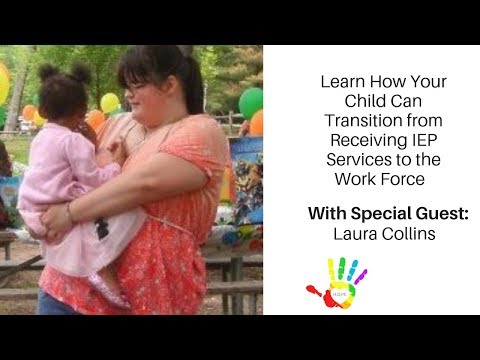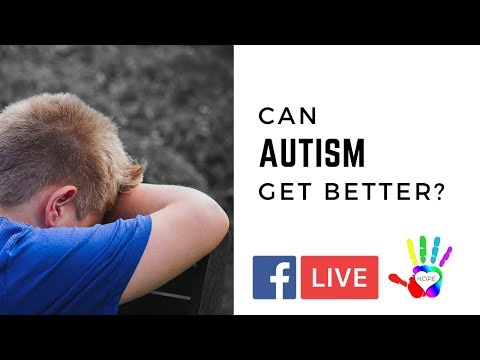Did you child’s assessment and receive two language scores– receptive and expressive– and wonder the difference was. Tonight, I will answer.
A new video will be posted to this series weekly. Subscribe so you do not miss a video and send video requests or questions to Jessica@JessicaLeichtweisz.com
Credits:
Photo: Morguefile
Sound effect: Incomputek
Intro: Graeme Kan
Video Production: Nathan Bedford
Disclaimer:
This video is intended for information purposes only. It is not intended to diagnose or treat any medical condition. The text, graphics, images, flash movies, and audio segments are not intended to be a substitute for professional medical advice, diagnosis, or treatment. Always seek the advice of your physician or other qualified health provider with any questions you may have regarding a medical condition.
The information contained in this segment is generalized. It may not be applicable in every situation. Before applying specific interventions, consult a behaviorist. Any behavior intervention can result in an undesired change in behavior if not implemented correctly. No client relationship is established as a result of watching these videos. Jessica Leichtweisz and Hope Education cannot be held responsible for any misuse of the information contained in these videos. <br> <h3>Auto Generated Captions</h3>
[Music]
hi and welcome or if you’re one of our
many loyal listeners welcome back to
hope education services video series
about autism and ABA my name is Jessica
likewise CEO of hope education services
and I’m an ABA therapist
it’s my passion to help families give
their children the best treatment and so
every week I post a video answering your
questions about autism and ABA this
week’s topic is what’s the difference
between receptive and expressive
language if your child received any sort
of assessment which they probably have
if you’re watching this video they
probably saw two scores expressive and
receptive language so what’s the
difference
expressive language is the ability to
respond or give a response so use
language vocally or verbally and I’ll
make another video to explain the
difference where’s receptive language is
the ability to understand another
person’s language so let’s do some
flashcards and give an example so if I
were to hold up this card and ask a
child
what’s a pencil or what is it and they
responded a pencil that’s expressive
language if I were to say what does a
frog say they would say ribbon or croak
or if I said what color is it they would
say green since they are giving a
response they’re emitting a vocal
response you know that we’re using
expressive language so receptive
language receptive language is really
understanding language so that’s
responding to another person’s
directions for example if you said to
someone go get me a pencil and they
brought our pencil back they’re
responding to your language receptively
when teaching and using a be a receptive
language typically looks like when
you’re putting cards on the table so for
example if I put three cards on the
table and said which one says ribbit and
a child selected the Frog they’re using
receptive language or their ability to
understand my language
using their own language another example
if I said which one’s blue they might
hold up the house and say well the house
is blue they are finding it visually in
a field so that’s how you know it’s
receptive language so to summarize
expressive language is emitting or using
vocal language and receptive language is
understanding and following another
person’s language so I hope that answers
your question I love to get your
questions so thank you so much to the
listener and the follower of Facebook
who sent bet in if you have any other
questions you want to answer I would
love to help you out just email me at
Jessica Jessica likewise calm and I will
get your question answered
god bless make it a great night and
don’t forget to check out our other
videos on Facebook and YouTube
[Music]
you
Receptive versus Expressive Language YW3GPCrAfoc
[Music]
hi and welcome or if you’re one of our
many loyal listeners welcome back to
hope education services video series
about autism and ABA my name is Jessica
likewise CEO of hope education services
and I’m an ABA therapist
it’s my passion to help families give
their children the best treatment and so
every week I post a video answering your
questions about autism and ABA this
week’s topic is what’s the difference
between receptive and expressive
language if your child received any sort
of assessment which they probably have
if you’re watching this video they
probably saw two scores expressive and
receptive language so what’s the
difference
expressive language is the ability to
respond or give a response so use
language vocally or verbally and I’ll
make another video to explain the
difference where’s receptive language is
the ability to understand another
person’s language so let’s do some
flashcards and give an example so if I
were to hold up this card and ask a
child
what’s a pencil or what is it and they
responded a pencil that’s expressive
language if I were to say what does a
frog say they would say ribbon or croak
or if I said what color is it they would
say green since they are giving a
response they’re emitting a vocal
response you know that we’re using
expressive language so receptive
language receptive language is really
understanding language so that’s
responding to another person’s
directions for example if you said to
someone go get me a pencil and they
brought our pencil back they’re
responding to your language receptively
when teaching and using a be a receptive
language typically looks like when
you’re putting cards on the table so for
example if I put three cards on the
table and said which one says ribbit and
a child selected the Frog they’re using
receptive language or their ability to
understand my language
using their own language another example
if I said which one’s blue they might
hold up the house and say well the house
is blue they are finding it visually in
a field so that’s how you know it’s
receptive language so to summarize
expressive language is emitting or using
vocal language and receptive language is
understanding and following another
person’s language so I hope that answers
your question I love to get your
questions so thank you so much to the
listener and the follower of Facebook
who sent bet in if you have any other
questions you want to answer I would
love to help you out just email me at
Jessica Jessica likewise calm and I will
get your question answered
god bless make it a great night and
don’t forget to check out our other
videos on Facebook and YouTube
[Music]
you
https://i.ytimg.com/vi/YW3GPCrAfoc/hqdefault.jpg Autism,aba,applied behavior analysis,applied behaviour analysis,hope education services,special education,langauge assessment,home school,education,therapy,jessica leichtweisz Did you child’s assessment and receive two language scores– receptive and expressive– and wonder the difference was. Tonight, I will answer.
A new video will be posted to this series weekly. Subscribe so you do not miss a video and send video requests or questions to Jessica@JessicaLeichtweisz.com
Credits:
Photo: Morguefile
Sound effect: Incomputek
Intro: Graeme Kan
Video Production: Nathan Bedford
Disclaimer:
This video is intended for information purposes only. It is not intended to diagnose or treat any medical condition. The text, graphics, images, flash movies, and audio segments are not intended to be a substitute for professional medical advice, diagnosis, or treatment. Always seek the advice of your physician or other qualified health provider with any questions you may have regarding a medical condition.
The information contained in this segment is generalized. It may not be applicable in every situation. Before applying specific interventions, consult a behaviorist. Any behavior intervention can result in an undesired change in behavior if not implemented correctly. No client relationship is established as a result of watching these videos. Jessica Leichtweisz and Hope Education cannot be held responsible for any misuse of the information contained in these videos.



